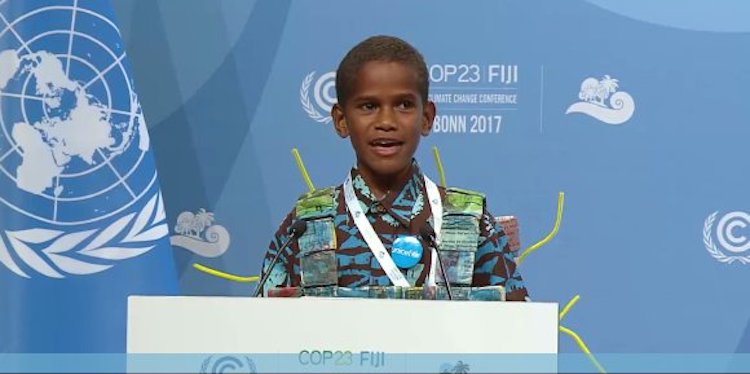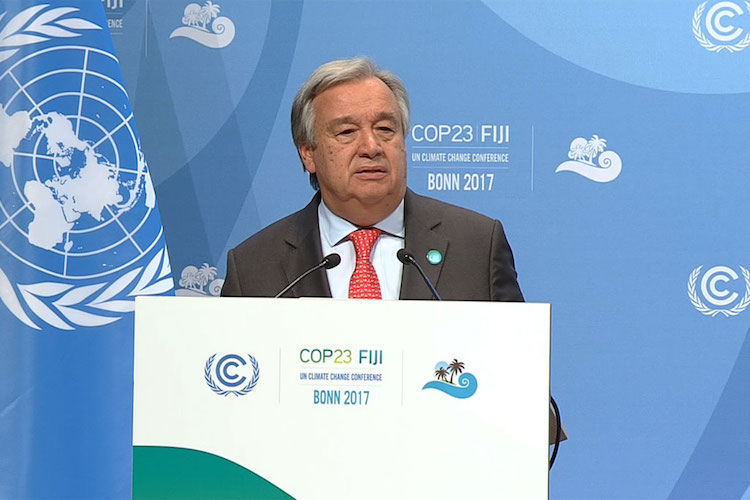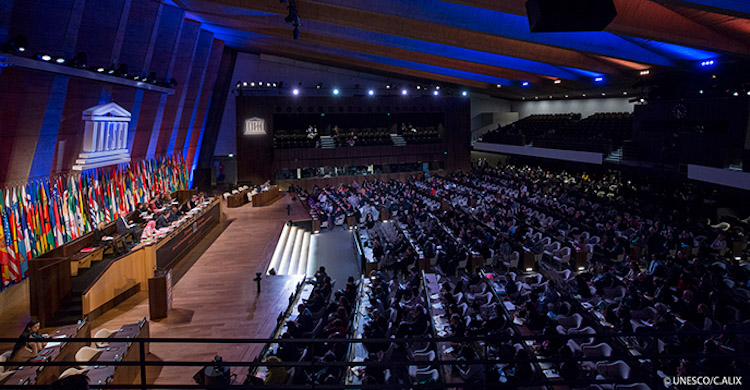By Ramesh Jaura BONN (IDN) – Twenty-five years ago, governments came together at the Earth Summit in Rio driven by the idea that the world needed to change the way it was treating its environment. From that idea, the United Nations Framework Convention on Climate Change (UNFCCC) was adopted – “and a movement began. A […]
Interview with Rick Wayman in Vatican City
Interview with Alyn Ware in Vatican City
Testimony as a Hibakusha by Ms Masako Wada at the Vatican Conference
Interview with Archbishop Silvano Maria Tomasi
Interview with Cardinal Peter K A Turkson
Vatican Conference on “Prospects for a World free from Nuclear Weapons and for Integral Disarmament”
Building a Secure World and a Healthy Planet for All
By António Guterres, UN Secretary-General Following are extensive excerpts from UN Secretary-General António Guterres’ remarks on November 15, 2017 at the Opening of the High-level Segment of COP23, the 23rd session of the Conference of the Parties (COP23) to the United Nations Framework Convention on Climate Change (UNFCCC). – The Editor BONN (IDN-INPS) – It […]
U.S. and Russia Should Avail of the Avalanche of Truth-Telling
By Alice Slater* NEW YORK (IDN-INPS) – NATO’s recent provocative decision to build up its military forces across Europe by sending four new multinational battalions to Lithuania, Latvia, Estonia and Poland, comes at a time of great turmoil and intense questioning of global security with new forces for both good and evil straining to make […]
New UNESCO Director-General Aims to Bridge Divides
By A.D. McKenzie PARIS (IDN) – “May the force be with you” was one of the comments by an ambassador at the investiture ceremony of UNESCO’s new director-general, Audrey Azoulay of France, on November 13. The “Star Wars” quotation was meant to evoke the many challenges that lie ahead for Azoulay as she takes over […]




